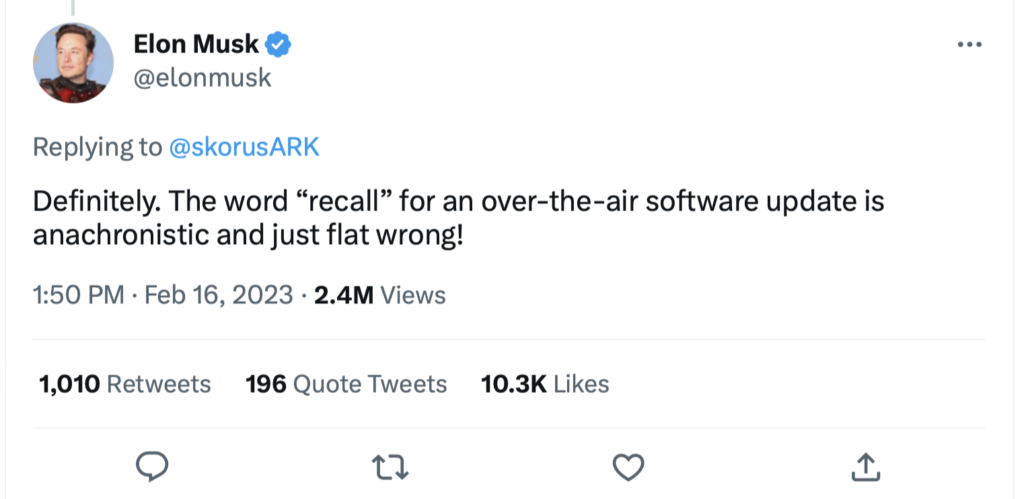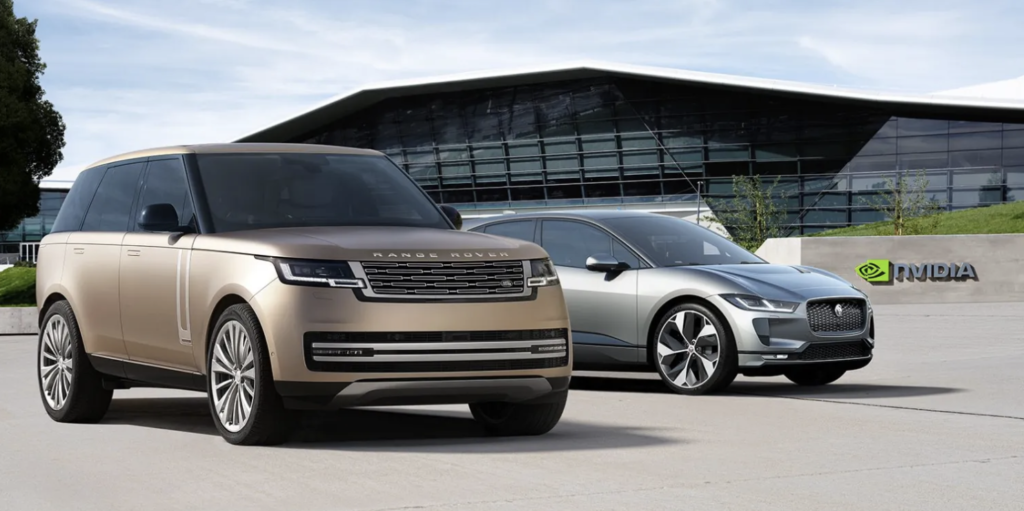Over the last few years, everyone has heard about self-driving cars and how they are getting closer to becoming a part of our everyday lives. There have been several videos on TikTok and Instagram showing people using the self-driving feature in their Tesla and many people in the comments mentioned how they would not trust this feature in their own car. While many people raised their doubts about the possibility of self-driving, Tesla is considered to be one of the pioneers for autonomous driving and has been able to make good progress over the years. We have discussed the concept of self-driving cars in class, but there are many roadblocks that stand in the way of this idea coming into fruition. There was an important update from Tesla yesterday concerning a large recall of their self-driving cars. This update alone could prove to be a major obstacle in making autonomous cars available sooner than later.
Tesla’s Progress
Around 2019, it looked very promising that Tesla was going to be able to sell self-driving cars in the near future as they continued to make significant leaps in their innovation. At the beginning of 2022, Elon Musk promised that Tesla would be selling autonomous cars by the end of the year. However, there have been many software challenges with making this a reality. Tesla began their “Full Self-Driving” Beta Software in 2020, and drivers interested in these self-driving capabilities were required to have a clean driving history in order to use the software. Recently, Elon said that “roughly 400,000 customers in North America” have access to the self-driving beta software. The high number of cars that have this FSD (fully self-driving) capability makes the recall much harder to tackle.
The Tesla Software Recall
Due to the recall, all 300,000+ vehicles that have the FSD beta software are forced to participate. Some of the main concerns highlighted in the recall were that the beta software may result in the car going straight in an intersection while sitting in the left-turn lane and may cause the vehicle to exceed speed limits, resulting in a higher risk of crash. However, Elon disagrees with the recall, saying it was “just flat wrong!” Elon has continued to make many bold statements about autonomous vehicles. For example, he stated that he thinks self-driving cars are safer and will make less mistakes than humans on the road.

Along with the recall, there is an ongoing investigation into Tesla’s vehicle systems. More specifically, the NHTSA, National Highway Traffic Safety Association, is looking into Tesla’s autopilot system as there are claims the system has caused hundreds of crashes. Tesla claims to not know of any incidents involving their systems and has received a request by the US Justice department to send more information concerning the features of their driving systems.
Other Companies Looking to Step In
While there is a lot of controversy involving Tesla, other companies are looking to get into the mix of self-driving cars. Yesterday, it was announced that Jaguar Land Rover is looking to hire more experts to develop their own autonomous car for the company’s next line of luxury vehicles. Jaguar Land Rover will be partnering with Nvidia, a very reputable AI computing company, to develop the self-driving car. In order to start the development, Jaguar Land Rover announced that it will be opening three brand new engineering hubs in Munich, Bologna, and Madrid. These new hubs will be fully focused on creating a luxury self-driving vehicle for Jaguar Land Rover’s next generation of luxury cars. More specifically, the partnership between Nvidia and Jaguar Land Rover will look to add advanced AI systems in the upcoming Land Rovers and Jaguars. These new luxury vehicles are expected to be released around 2025. It will be difficult for Jaguar Land Rover to match Tesla’s progress, but this partnership is a step in the right direction.

As someone who has always been very interested but skeptical in the idea of self-driving cars, I think it is great that other large car companies are starting to step in and try to create their own version of a self-driving vehicle for their future car generations. Tesla has done a great job experimenting with different possibilities in their software, but with other companies starting to test out the autonomous vehicle possibility, I think we will be able to have self-driving cars much faster than if it were just Tesla. I don’t see self-driving cars gaining the necessary momentum and confidence from consumers for at least 3-5 more years because it seems like whenever I search news about Tesla, there is an incident involving their autopilot or FSD features. However, it will be very interesting to see how everything plays out. Do you think that self-driving cars will become mainstream and have consumer confidence in the near future?